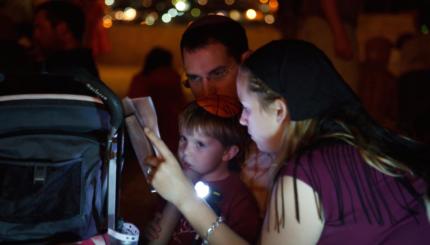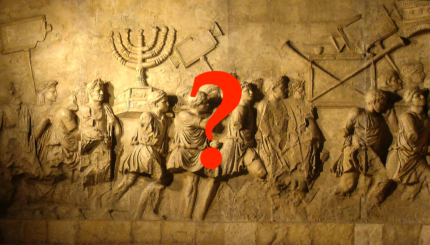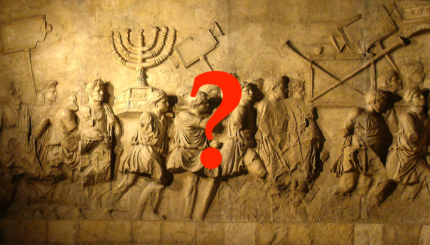I did not fast during Ramadan. But I did somehow experience a little bit of the meaning of the Muslim holy month that just ended a few days ago. The ebb and flow of the fast days was in my consciousness. The daily hunger and the spiritual uplift of the faithful were on my mind. I learned a tiny bit about the meaning of this month, about being conditioned through the fast to feel empathy for the poor who don’t have enough to eat. When the muezzin called just after the sun went down each day, I listened and thought of the parched throats praying and then easing their thirst and hunger. And although I did not fast, I participated in many iftar/break-fast meals with my Muslim friends. My neighbors became a little bit a part of me, and I became a little bit a part of them.
It is another way station in a gradual process of expanding my soul, of becoming aware of my surroundings, becoming cognizant of the Palestinians who make up over 90 percent of the populace here in Judea and Samaria/West Bank. It is all relatively new for me. Until a year and a half ago, I lived exclusively in the Jewish Zionist bubble that we have created for ourselves here. The bubble has broken.
The celebration of Eid al Fitr marks the end of Ramadan. I rejoiced in the new clothes and accessories that the children of my friends received for the holiday. And I was so happy that they had to fast no longer.
The end of Ramadan ushered in not only the Muslim Eid, but also the Jewish month of Av, and the nine-day period of mourning for the destruction of the First and Second Jewish Commonwealths and Temples that culminates in the solemn fast of the Ninth of Av/Tisha b’Av.
The prophets of the Bible railed against the lack of social justice that prevailed during First Temple times. They condemned the corruption and callousness that ignored the suffering of the widow, the orphan and the stranger. They cried out against the preoccupation with ritual that blinded the people to the oppression of the other that Jewish society tolerated. They implored their contemporaries to open their eyes and their hearts and to reorder their priorities. And if not, so they proclaimed in God’s name, tragedy would ensue. And it did. The Temple was destroyed, and the nation was conquered and sent into exile.
The Talmud adds that the deep cause of the destruction of the Second Temple was causeless hatred. Many rabbinic sources point out that the hatred that the refers to was ideologically based hatred, the othering that brings us to delegitimize those whose way of life and whose worldview we cannot accept and with whom we fundamentally disagree.
During these Nine Days and especially on the fast of Tisha B’Av our tradition asks us to look inside and examine our hearts and our deeds. We are told to put aside the sins that brought about the destruction of the First and Second Jewish Commonwealths.
I ask myself: Will my Ramadan affect my Tisha B’Av? Has enough empathy with my Muslim/Palestinian neighbors taken root in my heart to realize the challenge that the insights of our tradition present to the current political status quo? Is my Jewish self understanding and honest enough to see that the moral iniquity that our prophets and sages spoke up against is still dancing among us in the way that we relate to and behave towards the Palestinian people? And will I have the courage and fortitude to do something about it?
That is my challenge. I believe that this is our challenge as a Jewish society.



